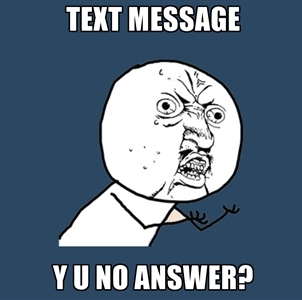If you are prone to attacks of anxiety, depression, low self- esteem, and use your mobile phone to send an excessive amount of text messages, then you could be the latest victim to suffer from the little known, modern day disease of Textaphrenia.
Today, sending and receiving text messages is seen to be a normal activity; it’s a more convenient way to keep in touch with your nearest and dearest, and it’s often a cheaper alternative to spending endless hours making a telephone call.
 Largely recognised as a condition that affects teens across the globe, another sure sign that you are over using your SMS service is RTS (Repetitive Thumb Syndrome).
Largely recognised as a condition that affects teens across the globe, another sure sign that you are over using your SMS service is RTS (Repetitive Thumb Syndrome).
While this activity may seem harmless to you and I, a study, conducted by Indore-based Mahatma Gandhi Memorial Medical College (MGMMC) on 150 youths aged between 18 and 25 years, reveals that those who frequently use SMS developed feelings of uneasiness, irrational anger and sleeplessness.
Shocking statistics from this study indicate that a good proportion of young people experience feelings of upset, rejection and anxiety if their text messages are not replied to.
The word ‘Textaphrenia’ is a term used to describe the action of constantly checking your mobile phone after sending a message, in anticipation of a prompt reply. Even though we all have a set ringtone to alert us of a new text message, a Textaphrenia sufferer will still insist on looking at their phone screen.
Ever had the feeling your phone has just notified you of a new SMS but there’s actually nothing there? If your answer is yes, then perhaps you can relate to some of the other symptoms and diagnose yourself with this latest technological addiction.
